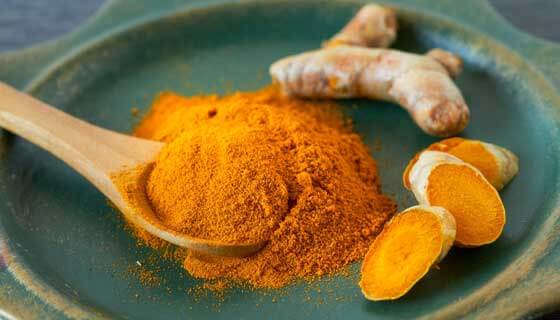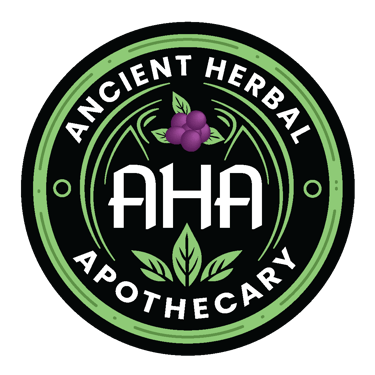Tumeric
The Golden Spice
Luann Morris
5/31/20243 min read


Unveiling the Golden Spice: Exploring the Wonders of Turmeric
In the realm of spices, there's one that stands out both for its vibrant hue and its multitude of health benefits - Turmeric. This golden spice, scientifically known as Curcuma longa, has been cherished for centuries, not only for its culinary uses but also for its medicinal properties. Let's delve into the fascinating world of turmeric, exploring its composition, uses, and folklore Scientific Name and Active Ingredients:
Scientific Name and Active Ingredients:
Turmeric, scientifically known as Curcuma longa, belongs to the ginger family, Zingiberaceae. The key active ingredient responsible for its vibrant color and many of its health benefits is curcumin. Curcumin is a polyphenol with potent antioxidant and anti-inflammatory properties. Other active compounds found in turmeric include:
1. Curcuminoids: These are a group of compounds including curcumin, demethoxycurcumin, and bisdemethoxycurcumin.
2. Turmerones: Aromatic-turmerone and curlone are two notable turmerones found in turmeric, known for their potential health benefits.
3. Curcuminoid Essential Oils: These include tumerone, atlantone, and zingiberone, contributing to turmeric's aroma and potential health effects.Common Uses and Dosage:
Common Uses and Dosage:
Common Uses:
- Culinary Delight: Turmeric is a staple in many cuisines worldwide, particularly in Indian, Southeast Asian, and Middle Eastern dishes. It adds flavor, color, and a subtle earthy aroma to curries, rice dishes, soups, and more.
- Natural Medicine: Traditional medicine systems such as Ayurveda and Traditional Chinese Medicine (TCM) have long valued turmeric for its medicinal properties. It's believed to aid digestion, reduce inflammation, promote wound healing, and support overall well-being.
- Beauty and Skincare: Turmeric is also used topically in face masks and creams for its potential skin-brightening and anti-inflammatory properties.
Dosage:
- Supplements: Turmeric supplements typically contain curcumin extract, standardized to contain a certain percentage of curcuminoids. Dosage recommendations may vary, but typical doses range from 500mg to 2,000mg per day, often divided into two or more doses.
- Culinary Use: There's no specific dosage when using turmeric in cooking. It's generally safe to consume turmeric in typical culinary amounts, adding it to dishes according to personal preference.
Components of Turmeric:
Aside from its active ingredients, turmeric comprises various other components that contribute to its nutritional and medicinal profile:
- Volatile Oils: These include substances like turmerone, zingiberene, and atlantone, providing aroma and potential health benefits.
- Proteins: Turmeric contains several proteins, though their role in its health benefits is not entirely understood.
- Vitamins and Minerals: While not a significant source of vitamins and minerals, turmeric contains small amounts of vitamin C, vitamin E, potassium, and iron.
- Dietary Fiber: Turmeric is a source of dietary fiber, aiding in digestive health.
Precautions
The use of herbs is a time-honored approach to strengthening the body and treating disease. However, herbs can trigger side effects and may interact with other herbs, supplements, or medications. For these reasons, you should take herbs with care, under the supervision of a health care provider.
Turmeric in food is considered safe. However, taking large amounts of turmeric and curcumin in supplement form for long periods of time may cause stomach upset and, in extreme cases, ulcers. People who have gallstones or obstruction of the bile passages should talk to their doctor before taking turmeric.
If you have diabetes, talk to your doctor before taking turmeric supplements. Turmeric may lower blood sugar levels. When combined with medications for diabetes, turmeric could cause hypoglycemia (low blood sugar).
Although it is safe to eat foods with turmeric, pregnant and breastfeeding women should not take turmeric supplements.
Because turmeric may act like a blood thinner, you should stop taking it at least 2 weeks before surgery. Tell your doctor and surgeon that you have been taking turmeric.
Possible Interactions
If you are being treated with any of the following medications, you should not use turmeric or curcumin in medicinal forms without first talking to your health care provider.
Blood-thinning medications
Turmeric may strengthen the effects of these drugs, raising the risk of bleeding. Blood thinners include warfarin (Coumadin), clopidogrel (Plavix), and aspirin, among others.
Drugs that reduce stomach acid
Turmeric may interfere with the action of these drugs, increasing the production of stomach acid:
Cimetidine (Tagamet)
Famotidine (Pepcid)
Ranitidine (Zantac)
Esomeprazole (Nexium)
Omeprazole (Prilosec)
Lansoprazole (Prevacid)
Diabetes Medications
Turmeric may strengthen the effects of these drugs, increasing the risk of hypoglycemia (low blood sugar).
Folklore about Turmeric:
Throughout history, turmeric has been steeped in folklore and cultural significance:
- Cultural Symbolism: In many cultures, turmeric holds symbolic importance. In Hindu rituals, turmeric paste is applied to brides and grooms in pre-wedding ceremonies for purification and to enhance their glow.
- Traditional Medicine: In Ayurveda, turmeric is considered a "cleanser of the body" and is used in various medicinal preparations to treat a wide range of ailments, from digestive issues to skin conditions.
- Spiritual Beliefs: Some believe turmeric to possess spiritual properties, associating it with cleansing negative energies and promoting positivity.
Turmeric is more than just a spice; it's a treasure trove of health-promoting compounds and cultural significance. From its culinary uses to its medicinal properties and rich folklore, turmeric continues to captivate and enrich lives worldwide. Incorporating turmeric into your diet or skincare routine might just be the golden ticket to a healthier, happier you.
